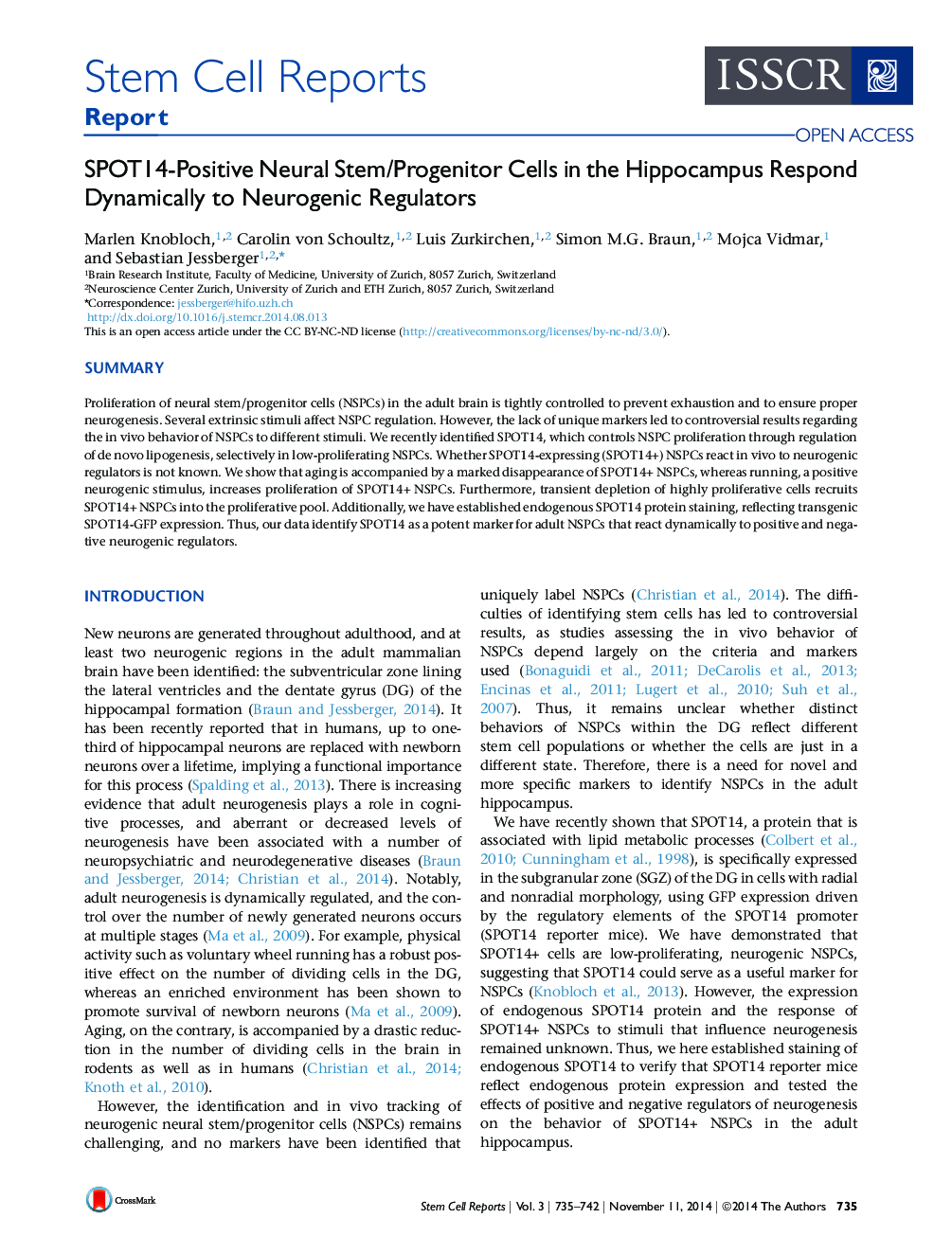| Article ID | Journal | Published Year | Pages | File Type |
|---|---|---|---|---|
| 2093324 | Stem Cell Reports | 2014 | 8 Pages |
•Endogenous Spot14 protein is expressed in adult NSPCs•Spot14+ cells dynamically respond to neurogenic stimuli•Spot14+ cells decrease with age in the mouse hippocampus•Spot14 labels relatively quiescent NSPCs in the adult hippocampus
SummaryProliferation of neural stem/progenitor cells (NSPCs) in the adult brain is tightly controlled to prevent exhaustion and to ensure proper neurogenesis. Several extrinsic stimuli affect NSPC regulation. However, the lack of unique markers led to controversial results regarding the in vivo behavior of NSPCs to different stimuli. We recently identified SPOT14, which controls NSPC proliferation through regulation of de novo lipogenesis, selectively in low-proliferating NSPCs. Whether SPOT14-expressing (SPOT14+) NSPCs react in vivo to neurogenic regulators is not known. We show that aging is accompanied by a marked disappearance of SPOT14+ NSPCs, whereas running, a positive neurogenic stimulus, increases proliferation of SPOT14+ NSPCs. Furthermore, transient depletion of highly proliferative cells recruits SPOT14+ NSPCs into the proliferative pool. Additionally, we have established endogenous SPOT14 protein staining, reflecting transgenic SPOT14-GFP expression. Thus, our data identify SPOT14 as a potent marker for adult NSPCs that react dynamically to positive and negative neurogenic regulators.
Graphical AbstractFigure optionsDownload full-size imageDownload as PowerPoint slide
